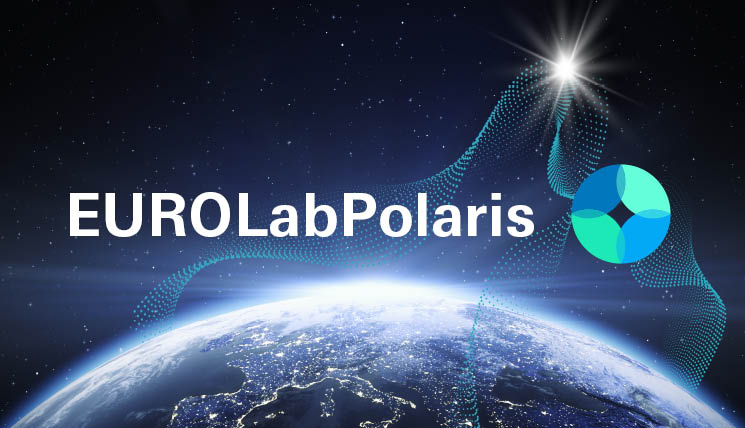With its newly developed software platform “EUROLabPolaris” EUROIMMUN meets the demands in the increasingly globalised field of laboratory diagnostics by enabling large laboratory groups to work together on digitally-supported immunofluorescence diagnostics across several sites.
In an interview Timo Schütze, the product manager responsible for the software, and Moritz Pavlik, the product manager responsible for IT development, tell us about the ideas behind the software and its advantages for the user.
Timo, why is a software like EUROLabPolaris needed?
We are living in a time in which, on the one hand, the average age of the world’s population is steadily increasing which also increases the need for diagnostic tests. On the other hand, there are not enough experienced specialists who can evaluate the results of laboratory tests, in particular of indirect immunofluorescence tests (IIFT). One way in which laboratories address this is by forming large laboratory groups so that they are able to meet these challenges on a global scale.
Moritz, what is the idea behind EUROLabPolaris?
The idea behind EUROLabPolaris is that, for example, large laboratory groups set up incubation laboratories where the IIFT are processed. In these laboratories, high-quality images of the incubated slides are taken using our automatic fluorescence microscopes (EUROPattern and EUROPattern Microscope Live) and uploaded directly into EUROLabPolaris. At the other end of the software, so to speak, a specialist evaluates the IIFT. They can view all the images from associated incubation laboratories and filter them by different criteria as well as enter results into the software and verify them. EUROLabPolaris then returns the result report to the corresponding incubation laboratory where it is transmitted to the laboratory information system using the middleware EUROLabOffice 4.0. A single specialist can therefore provide their expertise digitally to several incubation laboratories – regardless of their own location, and without having to be onsite or to change between sites. This way, EUROLabPolaris allows for an optimised IIFT workflow within a laboratory group.
Furthermore, an unchanged team of specialists with consistent expertise are available for the evaluation of the IIFT. This means that the test evaluations become more standardised, which above all benefits the patients because of precise diagnostics.
Timo, where did the software get its name?
Polaris, the North Star, guides people and helps them to find the right path towards their destination. We want to achieve the same thing with our software: as a central point of contact and reference, it helps laboratory personnel to achieve correct results and high-quality diagnostics.
Moritz, what are the advantages of EUROLabPolaris?
I think that one of the main advantages of the software is the fact that the specialist for diagnostics has a comprehensive overview of the open requests of all the associated incubation laboratories. They can be prioritised according to urgency or due dates so that the specialist can always see which request from one of the incubation laboratories to work on next. EUROLabPolaris also enables statistical evaluations concerning the workload of the different laboratory sites and the tests used.
The software can also be used on nearly any device such as desktop computers, laptops or tablets. That means that specialists can take EUROLabPolaris with them wherever they go*.
EUROLabPolaris is a central and easily accessible evaluation platform which helps to enable standardised and reliable diagnostics by pooling existing specialist knowledge and making it available to all associated laboratories.
Thank you, Timo and Moritz, for this interview!
Learn more about EUROLabPolaris also watching our latest video with Timo and Moritz.
*The purchaser is solely responsible for checking, observing and complying with local legal and official rules and regulations in connection with the use of this software.


